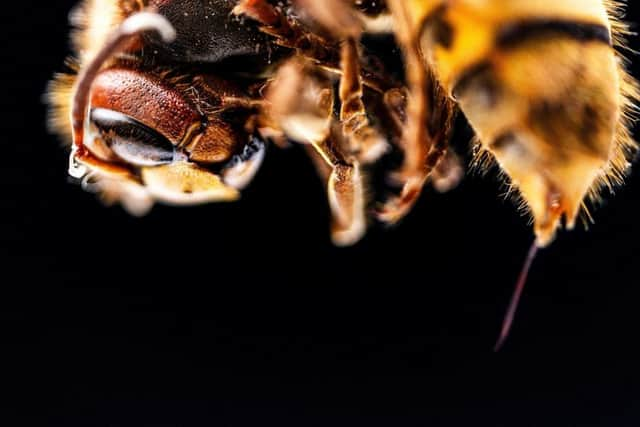How to deal with common bites and stings this summer, according to a Boots pharmacist
and live on Freeview channel 276
Turning to wasp, bee and hornet stings first, Clare said: ““A wasp sting causes a sudden, sharp pain at first, followed by a swollen red mark which may form on your skin. This may be painful and itchy and can last a few hours. Occasionally, the sting can cause a minor allergic reaction, which can be painful, red and swollen for up to a week. A bee sting feels similar, but the sting can be left in the wound. If this occurs, this should be removed as soon as possible using tweezers, before washing the area with soap and water. If there's swelling, apply a cold compress such as an ice pack, or flannel soaked in cold water, for at least ten minutes and where possible, elevate the affected area to help reduce any swelling.”
Mosquito bites are a slightly different business, and should be treated differently. For Clare, prevention is the best cure: It is advisable to try to cover exposed skin if spending time outdoors, especially at the time of day when mosquitos are most likely to be more active, including sunrise or sunset,” she said. “There are several insect repellent products available which, when used according to their instructions, can help reduce the risk of being bitten. In addition, if you’re travelling abroad, you should check if antimalarial medication is recommended for the country and region you will be visiting – you can do this using Boots’ online quick check tool.”
Advertisement
Hide AdAdvertisement
Hide AdTick bites are another common issue for those in the UK and abroad. Though they’re not always painful, they can cause lime disease and a range of other conditions. Clare says: “If you've been bitten by a tick, you should try to remove the tick as soon as possible using fine-toothed tweezers to gently grip the tick as close to the skin as possible, before pulling steadily away from the skin without twisting or crushing the tick. You should then wash your skin with water and soap afterwards and apply an antiseptic cream to the skin around the bite.”


Finally, Clare turns her expert attention to horseflies, which she says can be very painful, and sometimes lead to dizziness, weakness or wheezing.
She said: “Horsefly bites can take some time to heal and can become infected. Therefore, if you think the bite has become infected, which may show as increased pain, redness, swelling and there may be pus coming from the bite wound, you should see your GP straight away.
“You can speak to your Boots pharmacist for advice and suitable over-the-counter treatments to help relieve any pain, itching and/or swelling due to the bite or sting. If you’re worried, your symptoms don’t improve, or they get worse speak to your pharmacist or GP. If you have a severe allergic reaction, including difficulty breathing, chest pain, fits or seizures, severe swelling, vomiting or light-headedness or loss of consciousness, you should go the A&E or call 999 immediately.
Advertisement
Hide AdAdvertisement
Hide Ad“Anyone who suffers from severe allergies and is at risk of an anaphylactic reaction, should ensure they always have two adrenaline auto-injectors with them. Boots Online Doctor has an Anaphylaxis Treatment service, which can provide treatment if you’ve had a previous prescription, and if suitable, help you prepare for allergy emergencies.”